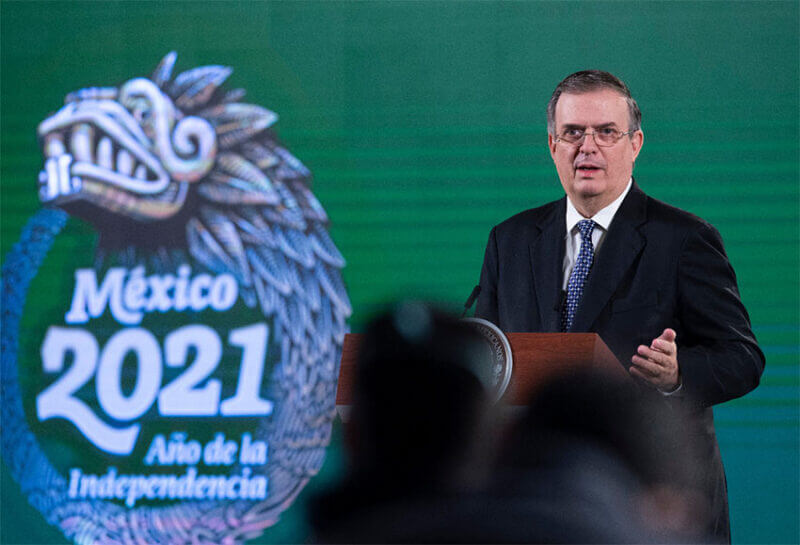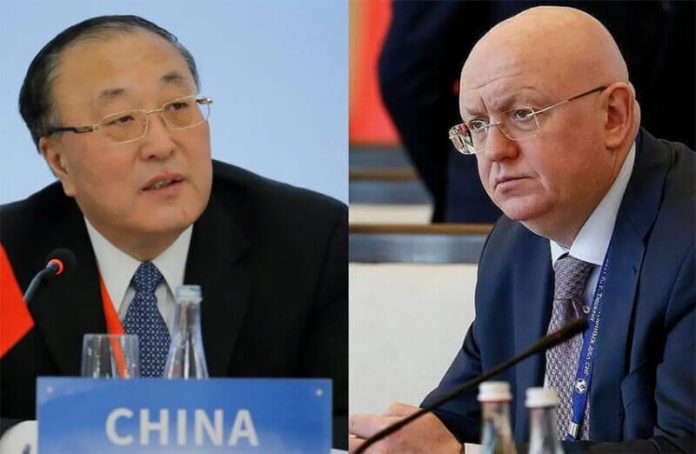Forty-seven countries have expressed support for the global anti-poverty plan President López Obrador presented at the United Nations earlier this week, Foreign Minister Marcelo Ebrard said Wednesday.
Speaking at a Security Council meeting he chaired on exclusion, inequality and conflict at the U.N. headquarters in New York on Tuesday, López Obrador outlined “a global plan of fellowship and well-being” to benefit 750 million people around the world who live on US $2 or less per day.
He said the plan could be funded to the tune of US $1 trillion annually by G20 members as well as the world’s 1,000 richest people and 1,000 largest companies.
Ebrard told the president’s morning press conference Wednesday that 47 countries have already signed up to collaborate on the plan.
“There is great interest; numerous regional organizations have shown their interest in participating in the formulation of the plan,” he said, adding that it could be applied as soon as next year.

“… [This] is the beginning of a route that Mexico is proposing. What is seen is a reaction of a lot of interest,” Ebrard said.
The foreign minister didn’t say which countries expressed support for the anti-poverty plan, but Russia and China appear unlikely to be among them.
In his remarks at the Security Council meeting after López Obrador spoke, Russia’s permanent representative to the U.N. said that “not even the [United Nations] Peacebuilding Commission nor the Security Council have the tools to facilitate the formation of sustainable and independent economic models nor guarantee the exchange or transfer of technologies, strengthen infrastructure, develop the industrial or agricultural sectors or create jobs.”
Vasily Nebenzya also said that human rights, development and climate change issues should be raised in “specialized platforms” that have the tools to deal with them and which have “universal or broad representation” of U.N. member nations.
“I’m specifically referring to the [U.N.] Economic and Social Council and the General Assembly,” he said.
Many Mexican news outlets interpreted Nebenzya’s remarks as a dismissal or rejection of the plan outlined by López Obrador.
However, the president did in fact say that the anti-poverty plan would be presented in detail to the General Assembly, and simply summarized the plan during his remarks to members of the Security Council, of which Mexico is currently a non-permanent member.
For his part, China’s U.N. representative said that “to promote and guarantee social equality, firm institutional agreements are needed.”
“… History has show us over and over again that undermining the principle of sovereign equality and arbitrary interference in the national interests of other countries [and] the imposition of external political models on developing countries … often result in internal conflicts in said countries, and that leads to a breeding ground for extremist ideologies that help those that preach hate and incite violence,” Zhang Jun said.
Newspapers similarly interpreted those remarks as an indication of non-support for Mexico’s plan, although it’s unclear how helping to lift people out of poverty would cause more, rather than less, violence.
AMLO, as the president is best known, got a warmer response for his proposal from members of the ruling Morena party, including federal Deputy Patricia Armendáriz, who suggested Mexico’s leader is worthy of the Nobel Peace Prize.
“… The plan is of great importance and it has great viability,” she wrote on Twitter, adding the hashtag #amlonobeldelapaz, or #AMLOpeacenobel.
With reports from Aristegui Noticias and El Universal
